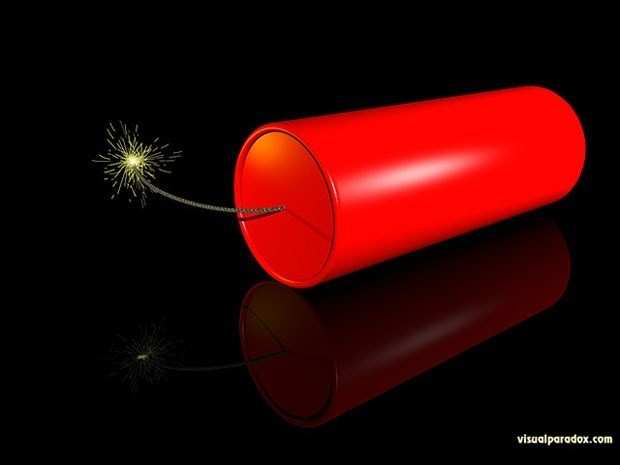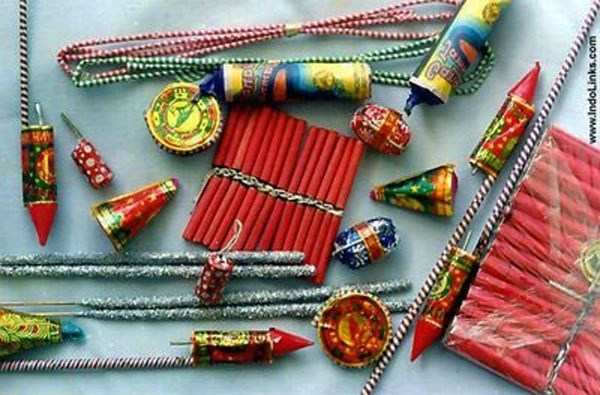Why do we love Firecrackers on Diwali?
typical way of celebrating by lighting firecrackers worth hundreds and thousands of rupees. Why we are tend to follow the tradition of observing fireworks on Diwali? What psychological satisfaction we get after burning and bursting those small sparkling objects?

Diwali is certainly indescribable without two most essential features; one is diya/deepak and other is firecrackers. Both of the said things are symbolically attached to one of the most celebrated festivals of India.
Although it is a Hindu festival but it’s widely celebrated by every Indian community and castes.
Since I was in my early teens, I am crazy about Diwali, that’s mainly because I will get chance to light firecrackers at my terrace with friends. My only intention or best you can say, it was a ‘mission’ to collect more and more pocket-money to buy as many fire crackers as I can.
Even today, I am fascinated with Diwali because of its characteristics features which turn every house, lane and city looks bejeweled and prosperous. About concept of fireworks I started thinking in another way unlike when I was 13 year old.
Lots of questions popped up now about this typical way of celebrating by lighting firecrackers worth hundreds and thousands of rupees.
Why we are tend to follow the tradition of observing fireworks on Diwali? What psychological satisfaction we get after burning and bursting those small sparkling objects?
Firecrackers actually harm environment, cause air and noise pollution and scare birds and animals. But honestly, contrary to this, Diwali is absolutely inexpressible without observing the tradition of fireworks.
May be a few of the environment fanatics can sue me for this but I still chose to remain intact with what I said.
‘Diwali: With or Without Firecrackers?’ is an unending debate but what interests me more is why firecrackers attract us?
Sources claim its origin in China in some 8th century when firecrackers were believed to be a source of frightening evil souls and then it reached Europe, Arab and India.
Later, it was mainly used to entertain Kings and their royal families, keeping it a very personal event. But gradually fireworks became common in most parts of the world and remained as the best way to express happiness and celebrations.
Chinese New Year, Independence Day of USA, Japanese Festival (Hanabi Takai) or Diwali in India, these colorful explosives are obligatory to express human happiness.
Bursting firecrackers are risky as it contains highly inflammable explosives though with lower intensity but can cause severe and fatal accidents too.
Then why we still loves to see and light firecrackers without fear?
“Engaging in risky behaviors is very reinforcing for people,” says Marry Cain, Associate Professor of Psychology at Kansas State University. Marry has researched on ‘human fascination with fireworks’ with one another psychologist Richard Harris.
Harris takes it as a Power of Tradition for those who are grown up under the influence of such traditions and they are more likely to observe it as a part of celebration through fireworks. And those who never get chance to witness such acts are more likely to be afraid of fireworks and term it dangerous.
If we take note of what both psychologists said, India is completely dissolved in several traditions, Diwali Celebration is one of them. So, naturally whatever part of India you belong to, you cannot abstain without indulging yourself in fireworks.
Another very possible reason of our fascination with Fireworks is that they are easily available only for a few days of the year during Diwali; India’s victory over Pakistan in a cricket match or a wedding ceremony being exceptions to this.

There is no clear proof whether people of Ayodhya had burnt fireworks on the arrival of Lord Rama when he returned from vanvaas or not, but there are strong scriptural proofs of people of Ayodhya welcomed Rama by lightning earthen lamps which is later terms as deep-avali.
The history of fireworks in India has layered between the soils but festival of Diwali is the only major observance when fireworks well define its purpose of existence in India.
I still enjoy fireworks with my 3 years old son and teach him how to handle them carefully and safely as Richard Harris says “People who remember enjoying setting off fireworks themselves as children will want to do that as adults or at least help their kids do it and such, perpetuate these memories.”
Fireworks in India are meant for Diwali and Diwali is certainly incomplete without fireworks. I respect who don’t agree with my thoughts. I have no problem in calling myself High Sensation Seeker.
Please be careful while setting off fireworks, don’t make this festival an awful one for you and your family.
The views expressed in this article are the author’s own and do not necessarily reflect Udaipurtimes.com’s policy.
To join us on Facebook Click Here and Subscribe to UdaipurTimes Broadcast channels on GoogleNews | Telegram | Signal


